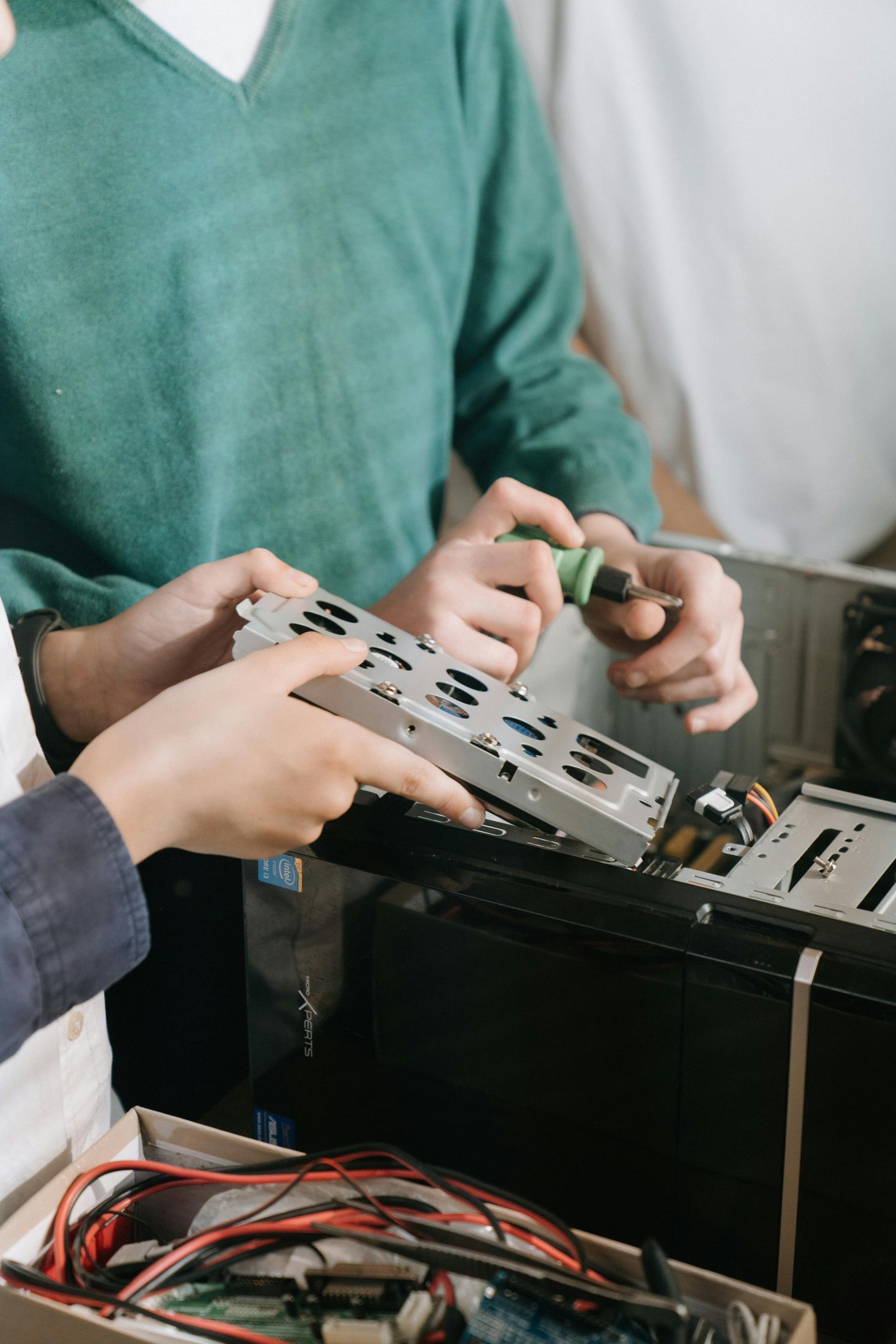A MINI-GUIDE TO LATENCY IN GAMING AND WHY IT MATTERS!
IP HOUSE LONDON: Enhancing Latency in Gaming with Colocation Data Centres

By Jamieson Lee Hill, Video Game Storywriter
In this new article, we explore the types and effects of latency for gamers and how colocation data centres support the gaming sector to deliver high-speed, lag-free gaming. Every gamer hates lag because it can mean the difference between winning and losing a battle in fast-action video games.
What is Latency?
Tony Tamasi of NVIDIA gives excellent pointers about latency in gaming in the video and article on NVIDIA’s website. Latency is defined as…
“...the time it takes for data to go from one place to another online, which is usually measured in milliseconds. In the gaming world, this usually refers to the time it takes for a player's input (like a mouse click or button press) to be sent to the game server and for the response to be sent back to the player's device.”
Source:
Trooli.com, August 2024
Two Main Types of Latency
Latency has an important influence on gaming performance and it can be divided into two main categories:
1. Network Latency - Lag vs Ping
Network latency is the delay in communication between your computer and the game’s server. So in gaming terms, these servers process essential actions like detecting hits or tracking player positions. Tony gives the example of taking a shot in a game and seeing a noticeable pause before the outcome appears. That delay can mean the difference between winning and losing a battle if your opponent shoots you. This type of delay is commonly referred to as lag aka ‘network latency’.
Ping and lag are often used interchangeably but they are not the same thing. Ping is the signal sent out from you taking an action in a game and the server responding. The duration of the ping is what we call ‘lag’:
“In online video gaming, ping refers to the time taken for data to travel from your computer to a server (or another player’s computer) and then back to your computer. That measurement is known as latency – sometimes also called lag – between the computer and its server. Ping is measured in milliseconds (ms).”
Source: Kaspersky.com, 2024
The British Esports organisation gives a clear explanation of the relationship between ping and lag…
“Lag is the result of high ping or high latency – which essentially means your internet connection is at a lower speed or quality than it should be. The main giveaway for lag is that it causes delay in your gameplay, with your commands not being acted on by the game immediately.”
Source:
Britishesports.org, 7 April 2022
2. System Latency (Local Latency)
In the NVIDIA video, Tony discusses the other main type of latency, System Latency aka Local Latency. This type of latency occurs between your set-up and your hardware. System latency is the time taken for your input e.g. a mouse click and the time it takes for the game engine to process these actions and then render & display these actions on your screen. If there is a high latency and a lag occurs, the delay between clicking your mouse to fire your weapon and seeing the weapon flash as the projectile goes off is known as System Latency.
The Impact of High Latency on Gaming
In the NVIDIA video, Tony Tamasi discusses the ‘peeker’s advantage’ in multiplayer games. This is a scenario in multiplayer games where the attacker spies the defender first because he or she is working at an angle. However, unfortunately, due to high latency, the defender is slowed down and cannot react in time to the attacker. The result is that the attacker kills the opponent.
Systems with lower system latency operate at a distinct advantage as they have far less delay time and thus can react more quickly. Suffice it to say, every gamer’s bugbear is lag.
The Impact of Lower Latency on Gaming
“Systems with lower system latency have an advantage, as they reduce this delay and give players more reaction time.”
Source:
Tony Tamasi, What is System Latency? NVIDIA Video, 2020
For developers, ensuring low latency is critical to retaining players and delivering a polished gaming experience. As stated by Tony Tamasi, lower latency boosts performance and reaction time, a key advantage in competitive gaming. Reduced latency makes a difference for gamers:
- Faster Reaction Times: Lower latency significantly enhances gaming performance by improving responsiveness and reaction times, which are critical in competitive and fast-paced games like Counter-Strike or Call of Duty where milliseconds determine outcomes. With low latency, a gamer can have the edge during critical moments, like landing headshots or dodging.
- Improved Gameplay Fluidity: In battle royale games like Fortnite or PUBG, low latency enables smoother interactions so players can build, aim, and move more effectively in intense firefights.
- Precision: Low latency enhances precision in timing and control for sports or simulation games like FC24 or racing games like F1. This allows gamers to do accurate passes, dribbles, or racing manoeuvres.
- Enhanced Multiplayer Sync: In MMORPGs like the classic World of Warcraft or Finally Fantasy and co-op games like Overwatch, reduced low latency means better synchronisation between players. This helps to remove the frustrating delays and mismatched actions.
- VR and AR Immersion: In virtual reality games, even slight latency disrupts the immersive experience and can cause giddiness. Low latency enables real-time interactions, which are essential for games like Beat Saber or Half-Life: Alyx.
IP HOUSE LONDON: How Colocation Helps Latency in Gaming
IP House London is a trusted name in colocation services, offering cutting-edge infrastructure designed to meet the demands of dynamic industries like gaming, finance, and media. Gaming success depends on rapid data transmission. IP House provides the gaming sector…
- High-Speed Connectivity and Scalability: Advanced fibre-optic technologies, CDN integration, and edge computing ensure low-latency, high-bandwidth performance with scalable solutions for traffic fluctuations. IP House’s close proximity to London’s Internet Exchanges guarantees low latency and faster connections.
- Reliable Power and Cooling: Backup generators and precision cooling systems maintain stability under heavy processing loads, ensuring uninterrupted operations for the gaming sector.
- Comprehensive Security: 24/7 monitoring, encryption, and access controls protect against cyber threats in gaming like data breaches and DDoS attacks.
Choose IP HOUSE For Gaming Excellence
With seamless integration of connectivity, power, and security, IP House is the natural choice for gaming companies.
Get in touch today. Fill out the Contact Form.
SOURCES
- https://www.trooli.com/blog/what-is-actually-latency-in-gaming
- https://www.t-mobile.com/home-internet/the-signal/speed/what-is-latency-in-gaming
- https://www.nvidia.com/en-us/geforce/guides/gfecnt/202010/system-latency-optimization-guide/
- https://www.databank.com/resources/blogs/colocation-for-gaming-servers-ensuring-low-latency/#:~:text=Employing%20high%2Dspeed%2C%20low%2D,latency%20and%20optimize%20data%20delivery.
- http://Kaspersky.com
- http://Britishesports.org
Contact Us











